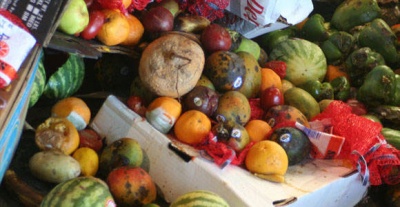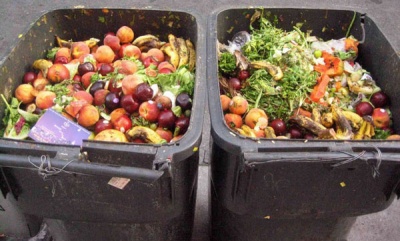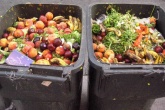MEPs urged to halve food waste with crucial vote
The European Parliament’s Environment Committee will vote on food waste regulations on 24 January, the outcome of which will likely define the EU’s policy on food waste for the next 15 years.

The vote comes a little over a year after the European Commission launched its Circular Economy Package (CEP) with the notable absence of binding targets for the reduction of food waste, although it registered strong support among member states for halving per capita food waste at retail and consumer levels by 2030, as set out in the UN’s Sustainable Development Goals.
The importance of fighting food waste has become more apparent in recent years, with an estimated 88 million tonnes of food wasted in EU member states every year, while there are 55 million people thought to be in food poverty in Europe.
Any reduction target would have to apply to producers as well as supermarkets, since up to 59 per cent of Europe’s food waste may occur before it even reaches the shops, according to the UN’s Food and Agriculture Organization.
A campaign supported by 39 organisations including This Is Rubbish, Friends of the Earth Europe and the European Environmental Bureau, and some 35,000 people across 15 EU countries is urging MEPs to vote to halve the amount of food waste generated by the EU by 2030, with the ruling to be legally binding at EU member state level. A petition has been signed by 35,000 EU citizens and will be submitted to MEPs on 20 January.
The campaign delivered a statement to the European Parliament regarding the EU’s CEP, calling for the following amendments:
- The CEP food waste reduction target of 50 per cent by 2030 to be specified as farm-to-fork. This means that it should include not just retailer and consumer food waste, but also food wasted at the primary production, manufacturing and distribution levels.
- The CEP food waste reduction target of 50 per cent by 2030 to be binding at member state level rather than a voluntary aim.
- The CEP to introduce a clear definition of food waste that includes food wasted at the level of primary production, and develop a methodology for measuring it by 31 December 2017. A clear timeline be introduced to measure and baseline food waste farm-to-fork by 2020.
- The CEP to establish a specific food waste hierarchy, rather than relying on a generic waste hierarchy. This should prioritise food waste reduction first, then redistribution for human consumption, then feeding to livestock, and only then less-efficient uses like anaerobic digestion, and landfill as a last resort.
 No more voluntary targets
No more voluntary targets
Martin Bowman, Campaigner for This Is Rubbish, which started the petition, said: “The Circular Economy Package has potential to be the most ambitious food waste agreement in the world, and that’s urgently needed – both for the environment and the millions suffering from food poverty in Europe.
“But the agreement is far from certain – it might be watered down. Corporate lobbyists have been trying to weaken food waste targets, putting both the environment and those living in food poverty at risk. Halving food waste could become an ‘aspirational’ voluntary target, making it easy for European governments and businesses to ignore. Some versions of the agreement sideline the mountains of food waste that exist on farms and in factories, before it even gets to the plate. But some businesses waste more in a day than a person does in their home in a year.
“We don’t need another voluntary target, or more narrow focus on consumer and supermarket waste. We need to ensure that this agreement is farm-to-fork, and is legally binding at state level, to make it really count.
“We urge more organisations to get behind us, and the people of Europe to sign our petition to make food waste history.”
Role of supermarkets questioned
As the European Parliament gears up for the vote next Tuesday, the UK parliament’s Environment, Food & Rural Affairs (EFRA) Committee will today grill representatives from Tesco, Sainsbury’s, Waitrose and Morrisons as part of its inquiry into food waste in Britain.
The Waste & Resources Action Programme (WRAP) last week revealed that £13 billion of edible food was thrown away by UK households in 2015, and has encouraged governments, businesses, local authorities and consumers to ‘unite in the food waste fight’.
The EFRA session with the supermarkets aims to explore the issue of transparency in food waste data, as well as how the retail and hospitality industries can reduce their food waste and what can be done to increase redistribution.
Following a petition in France that led to the prohibition of the destruction or disposal of unused edible food by French supermarkets in February 2016, a similar petition was launched calling on the European Commission (EC) to include an obligation for supermarkets across Europe to donate unsold food to charity.
That petition, running in Belgium, France, Germany, Greece, Italy, Spain and the UK in association with Action Against Hunger and the French Red Cross, has gathered more than 800,000 signatures.










